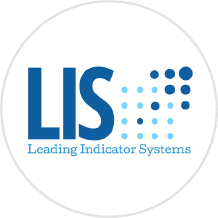 “When people clarify what matters and leverage their strengths, leaders emerge and anything is possible.”
“When people clarify what matters and leverage their strengths, leaders emerge and anything is possible.”
 “When people clarify what matters and leverage their strengths, leaders emerge and anything is possible.”
“When people clarify what matters and leverage their strengths, leaders emerge and anything is possible.”
[responsivevoice_button voice=”US English Female” buttontext=”Listen to Post”][vcex_spacing size=”20px”]
“Probably the two greatest failures of leaders are indecisiveness in times of urgent need for action and dead certainty that they are right in times of complexity.” Michael Fullan
Leonardo da Vinci was perhaps one of the most gifted, and disciplined, human beings in recorded history. Certainly his genius as a sculptor and painter is evident in his works, so his artistic skill is what most defines his genius. Behind the extraordinary skill necessary to create such beauty were Da Vinci’s personal truths such as “curiosita,” his insatiable curiosity; “sensazione,” his heightened development and use of his five senses; and, “dimostrazione,” his discipline to always test what he thought and believed. These truths distinguished him as a Renaissance Man. All three qualities were manifest to his genius, but it is “dimostrazione” that is so brilliant and relevant to leaders faced with important decisions, and, in particular, when clarifying their own personal truths.
Da Vinci held that truth and wisdom came from experience. An important aspect of experience is checking what you believe. Da Vinci trained himself to look at a particular conclusion, whether it was the subject of a painting or sculpture, an idea, or a concept, from three separate and distinct points of view. He was essentially able to completely set aside one viewpoint, place himself in a completely different mindset, and view the subject from the new and completely different angle. Then he was able to do this a third time. This technique would help da Vinci avoid decision-making biases and confirm, ultimately, his belief prompting a course of action. That the result of this process, on many occasions, was a masterpiece of art is a testament to its power.
To do so, you may make an argument against one of your beliefs as a second point of view. You may solicit input from your closest friend or a family member who can give you insight you may not have considered. A third perspective may involve focusing on your feelings as you deliberate on the personal truth. Be careful, as it can result in a sudden realization that is quite jolting.
A personal example hit me like a knockout punch while I was riding in the car with my son. He was a freshman in high school and I was driving him to baseball practice. He and I were alone in the car and I was seething about a poor grade on his report card, which I had just reviewed before picking him up. My son has very keen radar so he knew I was unhappy about something. The ride was a silent one until I chose to break the silence. I said, “I got your report card today, Andrew.” Still silence. I continued, trying to balance the anger and disappointment with anything positive I could muster. “I am happy that your teacher’s comments are positive…,” and then the inevitable, “BUT what happened in math?” My anger had overtaken me at that point so I don’t recall what Andrew said to me, but I do recall that I said very frankly, “The problem is one of two things, Andrew. You either aren’t as smart as I thought, or you simply aren’t working hard enough. I know you’re smart so it can ONLY be the latter.” The end of this statement was much louder than the beginning. Staring straight ahead with his chin up, my son’s eyes welled up. I recall seeing him conjure up all the courage he had inside, which took a quiet sniffle and a short breath or two, and then he said this, “Dad, I don’t get it. I am working hard. I’m sorry to disappoint you, but I am not as smart as you thought.” My son is not one to give excuses. His response shut me down.
Two years later, during a long conversation with one of his teachers, I learned that Andrew really was telling the truth that day. I was good at math. I assumed my son was too. And in making this assumption I neglected his need for support, labeled his problem, and, worse yet, labeled him, no doubt confirming in his mind how his father looked at him.
I’ve reflected on this moment many times since that day. Through looking at this from many angles, conversations with my wife, and through reflection on my own experience as a son, a personal truth was removed from my list on that day, and it was replaced by another. It effectively re-centered my thinking regarding a personal truth related to our children. Love them, listen to them, encourage them, but don’t see them as you. Lori and I have learned to let them be free to nurture their own blessings.
As a business leader, you are guided by your personal truths when making decisions, particularly in difficult times or periods of crisis. Clarifying carefully will avert decision-making biases and actions in the future. Your business and those you lead depend on you and the authenticity of your truths.
Send us a message using the form below, or email us at connect@danelipartners.com, or call 315-508-4370
























